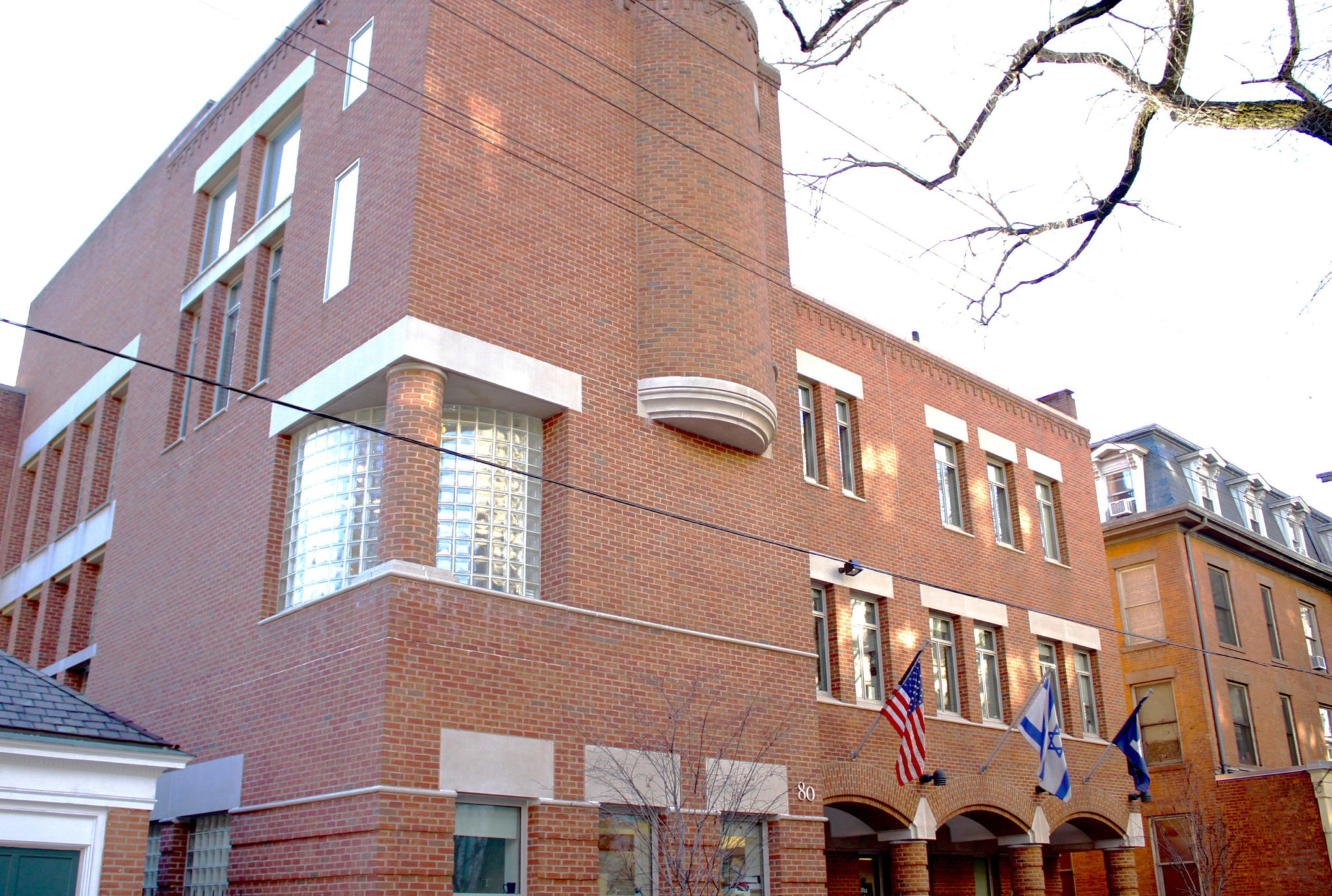
The Joseph Slifka Center building is closed for the duration of the fall semester, presenting challenges for Jewish students who rely on Slifka as a religious and community center.
Slifka Executive Director Uri Cohen announced the building’s closure in a July 7 email to the Slifka community. The email stated that the Slifka Center is unable to conform to Yale’s public health guidelines, as the configuration of the building does not allow for adequate social distancing measures. Cohen noted that although the physical building will not be in operation, the Slifka Center will offer typical programs — religious services, holiday celebrations and discussion groups — online.
“Rather than thinking of ourselves as ‘closed,’ we are using the language of ‘having moved online’ — and taking advantage of the opportunity this provides to be a meeting place for students who are local to New Haven and those who are not, as well as those who are enrolled at Yale and those who are not,” Cohen and Rabbi Jason Rubenstein, the Jewish chaplain at Yale, wrote in a statement to the News.
After announcing the closure, Cohen and Rubenstein, joined by the Slifka Board of Trustees and the Yale Hillel Student Board, spent the summer reimagining how prayer, holidays and religious study could look in a remote world.
Weekly Shabbat services for all denominations have been moved online, as have religious study groups and lectures that would normally take place within the building. Plans have been released for the Jewish holidays in the coming months and involve Zoom services as well as small masked gatherings for observant students.
“Judaism’s lifeblood is community: gathering together to share space and time, which is the one thing we cannot do now. Furthermore, two of our most powerful ways of connecting are through music and food — each of which is problematic due to the novel coronavirus — so we’re hampered in a second sense,” Cohen and Rubenstein wrote to the News. “We’re taking the losses from COVID very seriously and also confident that together with students we’ll come up with some frankly awesome new possibilities over the coming months.”
In a typical school year, the Slifka Center also serves kosher food. With the building closed, Shayna Sragovicz, Kosher Kitchen president, said the center has worked to accommodate students with varying kosher needs.
For on-campus students who eat strictly kosher food, Slifka partnered with Edge of the Woods Market, a kosher and vegetarian market in New Haven that delivers food straight to the dorms of students on the dining plan. For students who want kosher meat, a new kosher restaurant is opening up soon in New Haven that will then get added onto the plan. Students can also opt in to a meal plan offered through Slifka specifically for kosher Shabbat meals, which will be delivered on Friday and Saturday. Off-campus students can get reimbursed up to $30 weekly for any food items they buy for a Shabbat meal.
Sragovicz also said that Yale Hospitality is able to accommodate most kosher needs, so there are very few students on the fully kosher meal plan.
For his part, Yosef Malka ’24 said that the vegan option at Yale Hospitality meets his standards of kashrut, or his level of kosher dietary needs. Sragovicz added that the dining halls’ breakfasts have fully kosher options, so the kosher meal plan is just for lunch and dinner.
This semester, both the Slifka Center and Chabad, another center for Jewish life on campus, have a variety of Shabbat-specific options beyond the meal plans. Both centers, for example, have Shabbat boxes for on- and off-campus students. Ruthie Davis, Shabbat chair for the Hillel student board, has been creating weekly Shabbat packages with challah, a dessert, and grape juice for students in New Haven. Slifka has also been conducting virtual Shabbat services, as well as Zoom events before and after Shabbat to help reflect, unwind, and learn Torah. For its part, Chabad is hosting in-person gatherings when possible in addition to virtual offerings. Such programs will rely on Chabad’s patio, which was newly constructed in response to the restrictions on indoor gatherings.
“Instead of any indoor events, the patio is where our events will take pace this semester,” Chabad President Sam Fedman ’22 wrote. “From our Shabbat dinners, to learning seminars and other events, we really pulled out all the stops to make the patio a comfortable and safe place to be.”
Despite all of the efforts being made to adapt experiences during the pandemic, every interviewee acknowledged that Jewish life for students will not be the same this year. Still, students and leadership alike are hopeful that the year can be engaging even with these limitations.
“I look forward to the day when we can go back to 150 students around the dinner table,” Rabbi Shua Rosenstein, co-director of the Yale Chabad, told the News. “But until then, I’m grateful that we can take lemons and make lemonade.”
The Joseph Slifka Center for Jewish Life is located at 80 Wall St.







